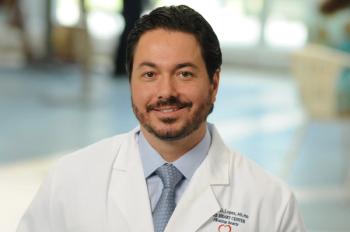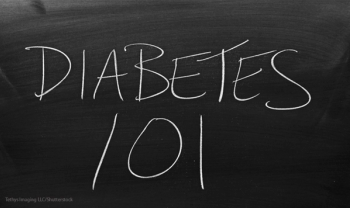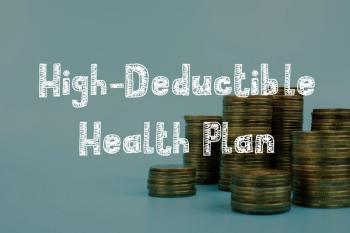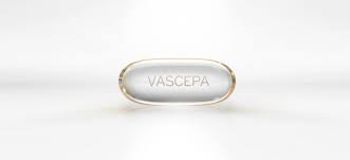
A study from the European Society of Cardiology answers a question about COVID-19: should patients keep taking well-known heart medications?


A study from the European Society of Cardiology answers a question about COVID-19: should patients keep taking well-known heart medications?

Findings presented at the European Society of Cardiology meeting could open the door to the use of the gout drug as a treatment targeting the underlying inflammation of cardiovascular disease.

SGLT2 inhibitors, GLP-1 receptor agonists also tackle cardiovascular disease, renal failure.

COVID-19 spotlights the threat that cardiovascular disease poses to Americans; new technology may help address risk factors at the population health level.

Study allays some concern that high-deductible health plans cause people to put off care, although authors urge caution in interpreting the results.

Dr. Deepak Bhatt presents results that show Vascepa cuts the risk for surgeries to restore blood flow to the heart by a third.

Results from REDUCE-IT trial presented at the ADA meeting show that the fish-oil pill is associated with cardiovascular disease protection among patients with diabetes.

The recalls of a widely used hypertension blood drug due to carcinogenic impurities are expanding.

A pharma maker is voluntarily recalling several lots of a major heart medication. Here’s why.

FDA declined to approve Merck’s claim that its cholesterol-lowering drugs Zetia and Vytorin reduce the risk of heart attacks and strokes in patients with coronary heart disease.

An FDA review of safety studies suggests a slightly increased risk of problems involving the heart and blood vessels supplying the brain among patients being treated with the asthma drug omalizumab (Xolair, Genentech) than in those who were not treated with omalizumab. As a result, FDA has added information about these potential risks to the drug label.


Not surprisingly, the treatment costs associated with ACS and its various comorbidities are astoundingly high.

Unhydrogenated, unsaturated vegetable oils, such as canola oil, can have health advantages when included in as part of a low-glycemic index (GI) diet in people with type 2 diabetes, according to research presented at American Diabetes Association Scientific Sessions in San Francisco, and published in Diabetes Care.

FDA has decided not to approve acute heart failure drug serelaxin (Novartis).

FDA approved dabigatran etexilate mesylate (Pradaxa, Boehringer Ingelheim Pharmaceuticals) for treatment of deep venous thrombosis (DVT) and pulmonary embolism (PE) in patients who have been treated with a parenteral anticoagulant for 5 to 10 days, and to reduce the risk of recurrent DVT and PE in patients who have been previously treated.

Compared to a combination of heparin and a glycoprotein (GP) IIb/IIIa inhibitor, use of bivalirudin (Angiomax) is associated with significant absolute reductions in risk for cardiac death and major non-coronary artery bypass graft (CABG) bleeding, according to data presented at the American College of Cardiology 63rd Annual Scientific Session (ACC.14), in Washington, D.C.

Results of 5 phase 3 studies evaluating evolocumab (AMG 145), an investigational fully human monoclonal antibody that inhibits PCSK9, a protein that reduces the liver’s ability to remove low-density lipoprotein cholesterol (LDL-C), or “bad” cholesterol, from the blood, were presented at the American College of Cardiology’s 63rd Annual Scientific Session (ACC.14), in Washington, D.C

Implementation of a pharmacy service that provides dosing, monitoring, education, and ensured safe transition from the inpatient to the outpatient setting is associated with improved patient satisfaction with overall care and with care related to anticoagulation management, according to a study published in the Annals of Pharmacotherapy.

Greater dietary fiber intake is significantly associated with lower risk of first stroke, according to a recent study published in Stroke.

Thanks to consumer education efforts on heart disease and hypertension, self-reported hypertension and use of antihypertensive medications has increased in the United States according to the Centers for Disease Control and Prevention (CDC).

Guideline-directed medical therapy for heart failure (HF) is highly cost-effective and able to produce significant health gains for individuals with mild to moderate disease, according a study published April 2 in the Journal of the American College of Cardiology.

In patients with heart failure with preserved ejection fraction, long-term treatment with spironolactone improved left ventricular diastolic function, but didn’t affect maximal exercise capacity, patient symptoms, or quality of life (QoL), according to a recent study in JAMA.

FDA has issued a second complete response letter regarding a supplemental New Drug Application (sNDA) for rivaroxaban (Xarelto, Janssen) for the reduction of the risk of cardiovascular events in patients with acute coronary syndrome (ACS).

In a recently published observational registry study, researchers have demonstrated that the utilizatio of evidence-based therapies in patients experiencing ST-elevation myocardial infarction is on the rise.